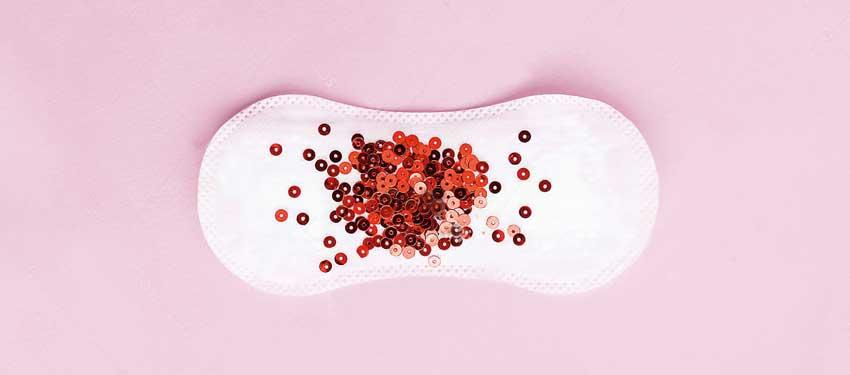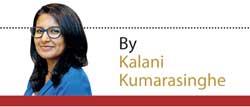Reply To:
Name - Reply Comment
Last Updated : 2024-04-28 16:27:00

The Government has imposed a 15 per cent VAT on sanitary towels
promises from both leading campaigns included free child care and free sanitary pads for women
Minister Wijesekara also noted that it was his personal opinion that sanitary products should not be taxed at all
If an average woman experiences a five- day period cycle per month, that can add up to a yearly cost of Rs. 1,500 to Rs. 6,240
 In November 2019, in the run up to the Presidential election, Sri Lanka debated the need for menstrual equity, in a bid to pursue the female vote. Exactly one year later, sanitary products and women’s rights are back in spotlight, only this time, the matter was taken up in Parliament during the Budget debate.
In November 2019, in the run up to the Presidential election, Sri Lanka debated the need for menstrual equity, in a bid to pursue the female vote. Exactly one year later, sanitary products and women’s rights are back in spotlight, only this time, the matter was taken up in Parliament during the Budget debate.
Samagi Jana Balawegaya (SJB) Parliamentarian Rohini Kavirathna and former SJB MP Diana Gamage protested the 15 per cent Value Added Tax (VAT) on sanitary napkins proposed by the Government in its Budget for 2021.
“The Government has imposed a 15 per cent VAT on sanitary towels. I request the President and the Prime Minister to make sanitary towels an essential item in Sri Lanka. 52 per cent of Sri Lankans are female and 50 per cent of school children do not attend school because of this issue,” MP Diana Gamage said.

“We are forced to say that the government has imposed a ‘menses tax’, similar to the taxes imposed in 1848 by then Governor Lord Torrington,” MP Kavirathna echoed. “There are children who do not attend school as they are unable to purchase sanitary towels. Developed countries have taken measures to provide free sanitary pads to schoolchildren and women with low income. As women parliamentarians, we condemn this move,” she said.
However, Sri Lanka Podu Jana Peramuna Parliamentarian Geetha Kumarasinghe had opposing views on the matter. “The ghost of Padman has returned to mock all of womankind. All I have to say is that, the need women have right now is security, and our Government has guaranteed that,” she said.
How does the tax work?
Source: Advocata Institute |
During the 2019 Presidential election promises from both leading campaigns included free child care and free sanitary pads for women. It resulted in Opposition Leader Sajith Premadasa being ridiculed on social media for his attempts and being named ‘Pad Man’, a label Premadasa embraced with style.
State Minister Kanchana Wijesekara meanwhile tweeted that there is no change in duty or prices of sanitary products. “Import tax on sanitary products was at 30% Custom Duty and 0% CESS. The Custom duty has been adjusted to 5,10,15% slabs as per new tax policy. With the new adjustments taxes for sanitary products will be 15% Custom Duty and 15% CESS. There’s NO CHANGE IN DUTY, NO INCREASE in PRICE,” Minister Wijesekera responded to Opposition’s claims.
“The total revenue from duty on sanitary products was Rs 140 million in 2019 and we will request President to reduce that too without harming the local producers or support the local producers to lowers their costs,” he added.
Minister Wijesekara also noted that it was his personal opinion that sanitary products should not be taxed at all. “The CESS taxes are usually applied to protect the local producers of the same products,” he said.
Party politics & period poverty
In Sri Lanka, the Parliamentary debate showcased yet another instance of women’s needs being overshadowed by political divides. As the SJB MPs pointed out, school children may be affected by period poverty. Of course, , little research has been conducted about access to menstrual products for people who are from low-income households. However, it must be noted that children may suffer lifelong consequences because they lack access to menstrual products, as missing just a few days of school can lead to significant performance gaps, as activists point out.
On average, a woman has her menstrual period from three to seven days. The average woman menstruates from the age of 13 years until the age of 51, adding up to a total of some 450 of period cycles for roughly 38 years. It amounts to 2,280 days of menstrual periods. That’s nearly six and a half years of a woman’s life, making sure that she has a sanitary pad with her at all times. The physical discomfort and cramps can be the worst part of the entire experience, but in most countries, it’s not the only one.
A pack of 10 sanitary napkins costs from Rs. 125 to Rs. 520. If an average woman experiences a five- day period cycle per month, that can add up to a yearly cost of Rs. 1,500 to Rs. 6,240, and that too if a woman only requires a single pack. Many women would agree however that, it’s not often the case. Although the prices may seem fairly affordable, women’s and children’s sanitary products in Sri Lanka, like in many other countries are subjected to taxation, especially the imported brands. But in Sri Lanka, the issue is particularly worrisome as sanitary products are heavily taxed. Until last year, the taxation on imported sanitary pads, tagged under luxury goods, was more than 100 percent. The imported sanitary pads are still tagged as luxury goods.
Menstruation is a biological process that is not optional. Many activists believe that levying taxes for sanitary pads which is also a health requirement, is simply unjust. The opposing argument however is that sanitary products are not optional, yet cannot be made tax- free as there are many diverse brands for sanitary products and their variants, and some of them are marketed by multinationals. The question remains, is it fair to tax a woman’s physiology?
Dhananath Fernando of Advocata Institute, an independent policy think tank based in Colombo, conducting research on the topic, have in the past suggested policy reforms which include the removal of several taxes. “CESS has been re-imposed, although the custom import tax has been brought down from 30% to 15%, we cannot agree with the re-imposition of tax. It would have been better if these taxes can be abolished altogether, especially for menstrual hygiene products,” Mr.Fernando said.
“There is a misconception that these taxes are being balanced off. When there is a CESS charge, there is a higher implication in the tax calculation. An increase in CESS of 15% and reduction in CID (custom impose duty) to 15% from 30% doesn’t cancel it off. It’s a cascading system where one tax is imposed on top of the other. It’s a marginal increase. But during a crisis, especially in a pandemic situation, where most jobs have been affected, at that point we must look at lower tariff rates, for other products as well,” Mr. Fernando said.
Commenting on the argument, that the taxes are in place to boost local production of sanitary products, he said it has to be viewed from the customer’s perspective. “If it doesn’t have an impact, then why raise the tax? Imports are more competitive, and the local manufacturers are not competitive enough, especially in terms of quality,” he said.
On Wednesday, Scotland became the first country to allow free and universal access to menstrual products, including tampons and pads, in public facilities. Some countries which have made positive moves to help bring the menstruation discussion to the stage include Kenya and Uganda which abolished sales tax on menstrual hygiene products. Meanwhile Zimbabwe subsidizes local manufacturers. The Kenyan government also provides funding for sanitary pads in schools.
Some intriguing issues about menstruation
Daily Mirror Insight asked over 170 women about the use of sanitary products. The majority of women who took the survey were between the ages of 19 to 30 years, living in urban and suburban areas. 79% of the women said they were uncomfortable discussing menstruation or menstrual health in public. While the women were mostly satisfied with the quality of sanitary products available in the market, quality and comfort were some areas they had concerns over. A considerable number of them said that they hadn’t questioned the issue before, but a majority highlighted that imported sanitary products, which they preferred to use over local products were expensive.
mp Thursday, 26 November 2020 07:05 AM
Scotland has become the first country to allow free and universal access to menstrual products, including tampons and pads, in public facilities, a landmark victory for the global movement against period poverty.
Sammy Thursday, 26 November 2020 08:14 PM
While it maybe understandale that some tax is imposed on imported sanitary pads, I don't understand why such high taxes should be imposed on locally manufactured tampons. These are not like cigarettes or liquor but now essential items for women. What about poor women?
Sammy Thursday, 26 November 2020 08:14 PM
While it maybe understandale that some tax is imposed on imported sanitary pads, I don't understand why such high taxes should be imposed on locally manufactured tampons. These are not like cigarettes or liquor but now essential items for women. What about poor women?
Bandu Friday, 27 November 2020 02:08 PM
Oh how they ridiculed Sajith for saying free pads to young persons. Now they go one better and put it out of reach. Ladies get pieces of rags ready, like in days of yore and make your own amudes. Sad indeed.
Vijith Friday, 27 November 2020 02:45 PM
If Sajith won the game SL would be the first country of giving free sanitary ware. Unfortunately every thing was taken ridiculous and we are going bad to worse.

Add comment
Comments will be edited (grammar, spelling and slang) and authorized at the discretion of Daily Mirror online. The website also has the right not to publish selected comments.
Reply To:
Name - Reply Comment
US authorities are currently reviewing the manifest of every cargo aboard MV
On March 26, a couple arriving from Thailand was arrested with 88 live animal
According to villagers from Naula-Moragolla out of 105 families 80 can afford
Is the situation in Sri Lanka so grim that locals harbour hope that they coul

26 Apr 2024
26 Apr 2024